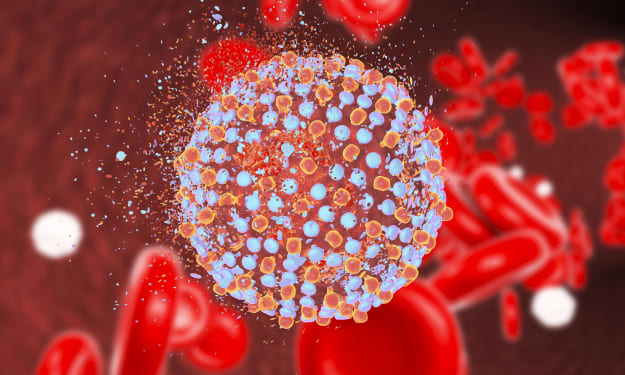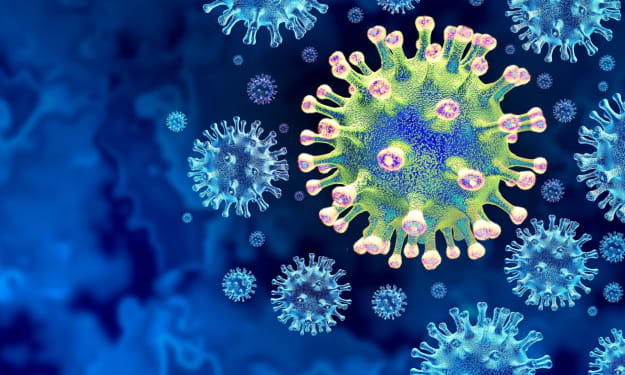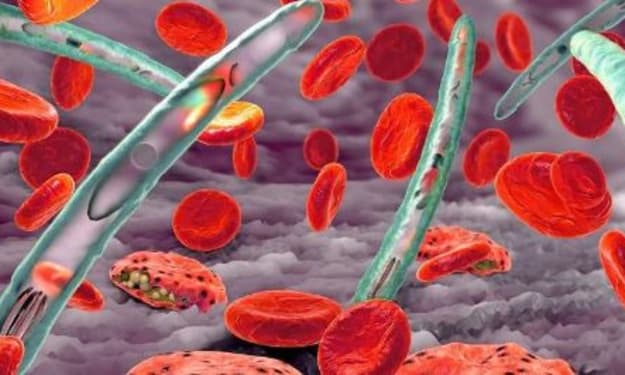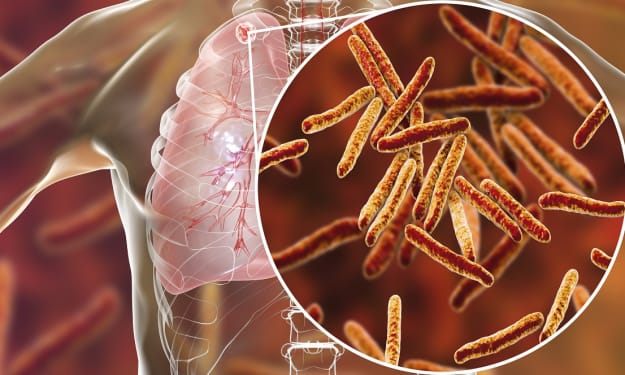Doctor Nadia
Bio
I am a doctor and writer who has expertise in writing articles on different topics.
Stories (14/0)
Hepatitis C
Hepatitis C is a viral infection that affects the liver. It is a major global health problem, with millions of people worldwide affected by the disease. Hepatitis C can cause acute or chronic liver disease, and it is a leading cause of liver cancer and cirrhosis.
By Doctor Nadiaabout a year ago in Lifehack
Hepatitis B
Hepatitis B is a viral infection that affects the liver. The virus is transmitted through contact with the blood, semen, or other bodily fluids of an infected person. Hepatitis B can cause acute or chronic liver disease, and it is a major global health problem, affecting millions of people worldwide.
By Doctor Nadiaabout a year ago in Lifehack
Polio
Polio, also known as poliomyelitis, is a highly infectious viral disease that mainly affects young children. The virus is spread through contaminated food and water or through contact with infected feces. Polio can cause paralysis or even death, and there is currently no cure for the disease.
By Doctor Nadiaabout a year ago in Humans
Measles
Measles is a highly contagious viral infection that primarily affects children but can also affect adults who have not been vaccinated or previously infected. The disease is caused by the measles virus and is transmitted through airborne droplets from the nose, mouth or throat of an infected person. Measles can lead to serious complications, including pneumonia, encephalitis, and death.
By Doctor Nadiaabout a year ago in Lifehack
Influenza
Influenza, commonly known as the flu, is a contagious respiratory illness caused by the influenza virus. The flu is a common illness that affects millions of people worldwide every year, and can lead to serious complications in vulnerable populations such as the elderly, young children, and people with underlying health conditions.
By Doctor Nadiaabout a year ago in Humans
Malaria
Malaria is a serious and sometimes fatal disease caused by a parasite that is transmitted to humans through the bites of infected mosquitoes. The disease affects millions of people worldwide, particularly in tropical and subtropical regions of Africa, Asia, and Latin America. According to the World Health Organization (WHO), there were an estimated 229 million cases of malaria and 409,000 deaths from the disease in 2019.
By Doctor Nadiaabout a year ago in Education
Tuberculosis
Tuberculosis (TB) is a bacterial infection that primarily affects the lungs, but can also affect other parts of the body such as the kidneys, spine, and brain. TB is one of the top 10 causes of death worldwide, and it is estimated that around 1.4 million people died from TB in 2019.
By Doctor Nadiaabout a year ago in FYI
HIV/AIDS
HIV/AIDS remains one of the most devastating pandemics in human history, with over 38 million people living with HIV worldwide. Despite significant progress in the prevention and treatment of HIV/AIDS, it continues to pose a significant public health challenge, particularly in low- and middle-income countries.
By Doctor Nadiaabout a year ago in Humans
Heart Disease
Heart disease is a broad term used to describe a range of conditions that affect the heart, including coronary artery disease, heart failure, arrhythmias, and congenital heart defects. It is the leading cause of death worldwide, responsible for more than 17 million deaths each year.
By Doctor Nadiaabout a year ago in FYI
Parkinson's Disease
Parkinson's disease is a chronic and progressive neurological disorder that affects millions of people worldwide. It is the second most common neurodegenerative disease, after Alzheimer's disease. Parkinson's disease is characterized by the loss of dopamine-producing neurons in the brain, leading to a range of motor and non-motor symptoms.
By Doctor Nadiaabout a year ago in FYI
Alzheimer's disease
Alzheimer's disease is a progressive neurodegenerative disorder that affects millions of people worldwide. It is the most common cause of dementia, accounting for up to 70% of all cases. Alzheimer's disease is characterized by the accumulation of abnormal protein deposits in the brain, which can lead to the loss of neurons and brain function over time.
By Doctor Nadiaabout a year ago in Families













